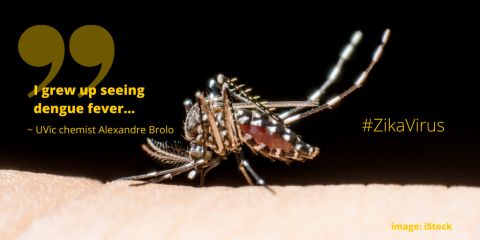
UVic chemist gets new funding to tackle Zika virus outbreak
Two promising University of Victoria projects to help prevent spread of the mosquito-borne Zika virus have been given a funding boost.

Two promising University of Victoria projects to help prevent spread of the mosquito-borne Zika virus have been given a funding boost.
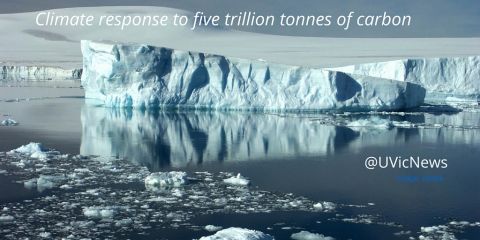
If the Earth’s remaining untapped fossil-fuel resources are burned—the equivalent of five trillion tonnes of carbon emissions—the average global temperature is predicted to increase by between 6.4°C and 9.5°C, with Arctic temperatures warming between 14.7°C and 19.5°C, according to a paper published this week in Nature Climate Change. The strong warming increase is considerably larger than previously anticipated.
University of Victoria experts are available to media to discuss the National Energy Board’s recommendation to conditionally approve the twinning of Kinder Morgan’s Trans Mountain pipeline.
Informed by community need and inspired by Calls for Action stemming from Canada’s Truth and Reconciliation Commission, the University of Victoria’s School of Public Administration is offering a new diploma program in Indigenous Community Development and Governance.

Exploring the meaning behind the geometric symbols on cave walls launched the research career of Genevieve von Petzinger, University of Victoria PhD candidate in anthropology, and won her recognition with a 2016 National Geographic Emerging Explorer award.

Driving on ice roads in the far north is a normal occurrence for geographer and storm expert David Atkinson. In late April, Atkinson and colleagues drove the ice road between Inuvik and Tuktoyaktuk, and later flew up even farther to Ulukhaktok and Sachs Harbour (pop. 80 people). His purpose was to interview residents about the impacts of weather (especially storms), as he says, “who knows more about northern weather than the people most affected by it?”
Entrepreneurs at UVic will get valuable assistance to develop promising ideas through a relaunch of the Innovation Centre for Entrepreneurs (ICE) supported by $450,000 from Coast Capital Savings Credit Union.
University of Victoria entrepreneurs will get additional vital support and mentorship through the relaunch of its Innovation Centre for Entrepreneurs (ICE), made possible through $450,000 in funding from Coast Capital Savings Credit Union.
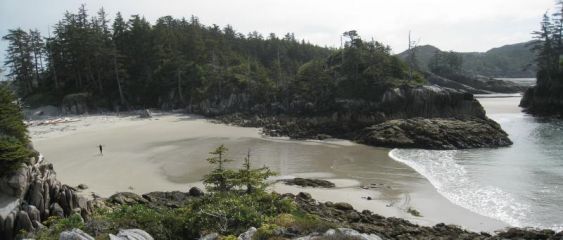
Take a virtual tour from seaweeds and sea stars to wolves and eagles, with a new digital field guide. The guide provides experts and amateurs with a tool to identify over 700 species in the Great Bear Rainforest to help deepen our appreciation of the biodiversity along BC’s central coast.
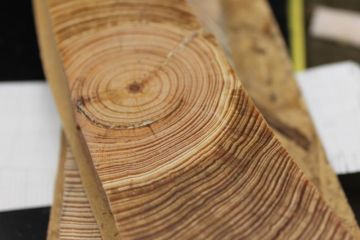
Combined with the impacts of climate change and deforestation, the coastal regions of southern BC are very likely to be hit by a worse drought within the coming decades than any time in the last three to four centuries, according to a new report co-authored by graduating PhD student Bethany Coulthard at the University of Victoria.
Combined with the impacts of climate change and deforestation, the coastal regions of southern BC are very likely to be hit by a worse drought within the coming decades than any time in the last three to four centuries, according to a new report co-authored by recent PhD graduate Bethany Coulthard at the University of Victoria.
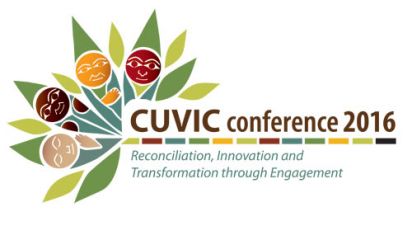
CUVIC 2016: Reconciliation, Innovation and Transformation through Engagement will welcome 200 delegates—from across Vancouver Island and BC and as far away as Nova Scotia—to campus April 27 to 29.
The University of Victoria will begin consultations in May to develop a separate policy on sexualized violence that will build on current policies and practices and reinforce the university’s commitment to a safe campus where sexualized violence is unacceptable.

A comprehensive study of on-reserve housing by University of Victoria PhD candidate Sylvia Olsen explains for the first time the history of the Indigenous housing crisis in Canada and the persistent failures of the federal system over a span of 65 years.
From seaweeds and sea stars to wolves and eagles, a new app provides experts and amateurs with a tool to identify over 700 species in the Great Bear Rainforest to help deepen our appreciation of the biodiversity along BC’s central coast. The guide for phone, computer and tablet is a collaborative project developed by UVic's Brian Starzomski and including grad studentChanda Brietzke and alumna Kelly Fretwell.
New research by the 2060 Project, a joint initiative of IESVic and the UVic-led PICS, examines whether BC electricity imports are a realistic solution to Alberta's emissions reductions plan.